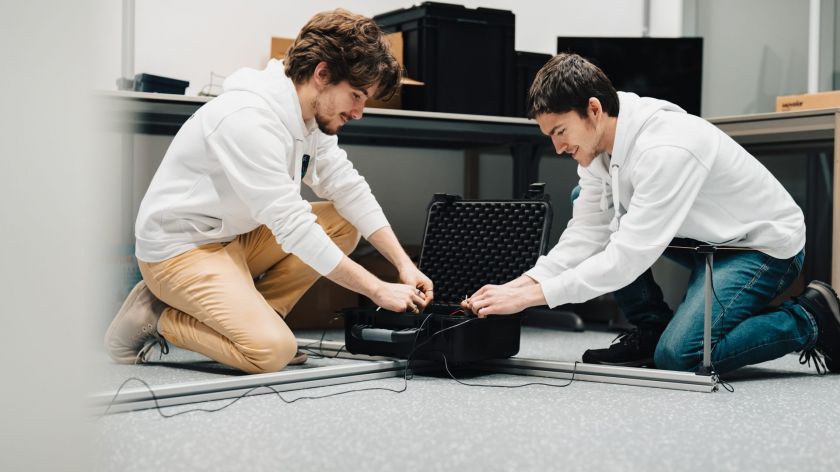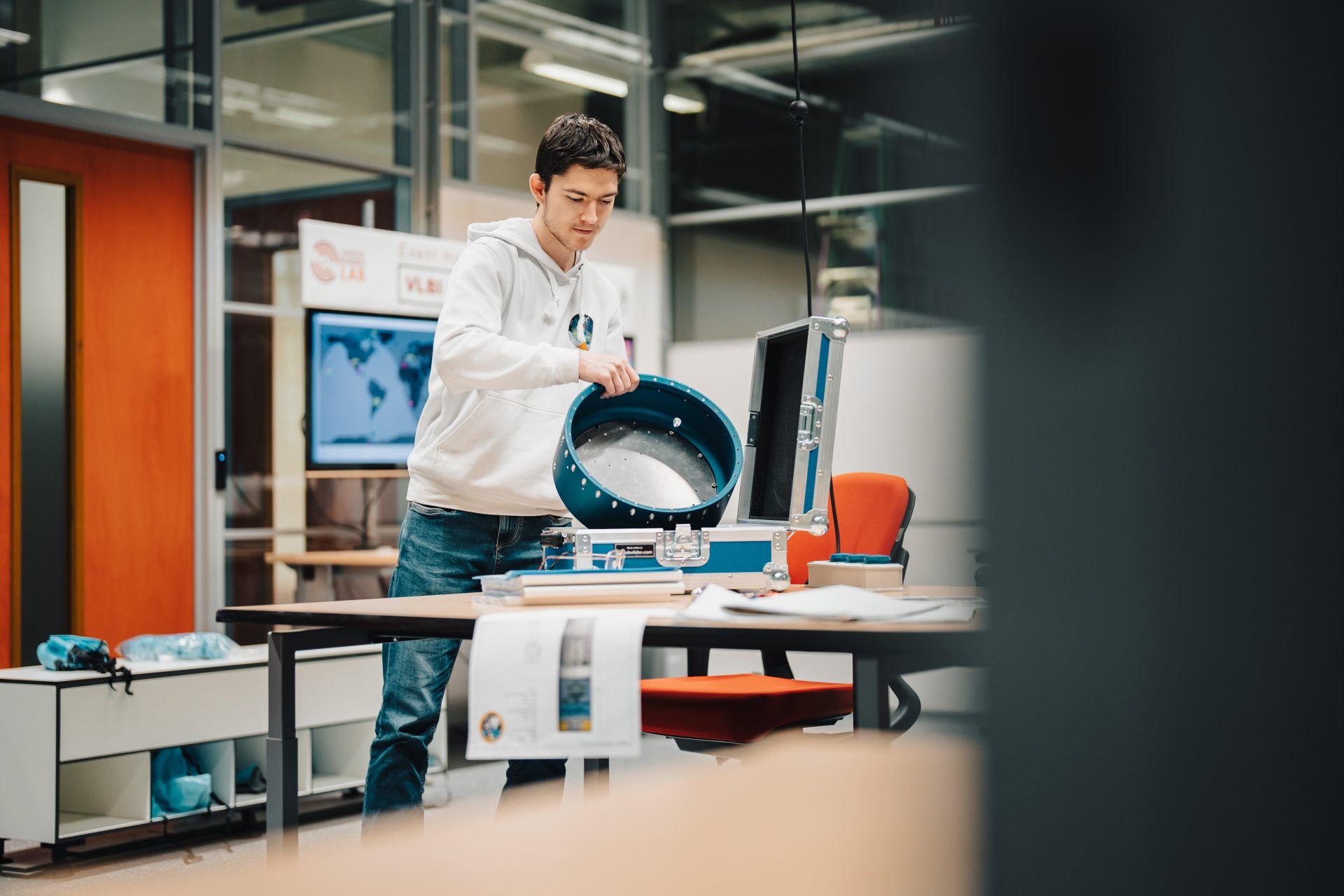Nijmegen students assist in rocket launch and Mars mission
-
 The Nijmegen/Eindhoven team PR^4. Roel Kleinhans (l). Photo: Johannes Fiebig
The Nijmegen/Eindhoven team PR^4. Roel Kleinhans (l). Photo: Johannes Fiebig
They already had Sweden in the pocket, and now Egypt as well. Nijmegen students fascinated by space travel will assist on a simulated Mars mission and rocket launch next year. The first test takes place in Scandinavia in two months’ time.
The desert landscape in Egypt looks somewhat like Mars. That is why the Austrian space agency ÖWF (Österreichischer Weltraum Forum) wants to simulate a Mars mission there in 2024. Student teams in all of Europe could submit a proposal to work on that plan. Students from Nijmegen are having a small party in their lab next week, because they were recently selected to participate. Together with students of the Eindhoven University of Technology (TU/e), they form the 20-person team PR^4. They will provide an astronaut with a transmitter, so they can see exactly where they are at any moment.
Rocket
The premise is based on a rocket project which they’ve been working on for some time now. ‘We are looking at how you can precisely locate a rocket’, says student Roel Kleinhans on behalf of the team. ‘The rocket will be fitted with a transmitter and several ground stations with antennas communicate with it. By using those signals, you can very accurately determine the position and direction.’
‘It is very cold there, and the previous ground stations couldn’t handle that’
That is useful, because a rocket has a lot of speed and disappears from view quickly when fitted with just a GPS tracker (which is currently the case). It wouldn’t be very convenient if you had to find out where it had gone after the launch. Previous teams from Nijmegen and Eindhoven also worked on a system with transmitters and ground stations, their method is now being improved.
‘In April, we will travel to Sweden with a small group to conduct the first tests for the REXUS programme of ESA (see box, ed.). A year later, a real rocket will be launched there’, says Kleinhans. ‘It is very cold there, and the previous ground stations couldn’t handle that. So now we’ll incorporate a heating element, among other things.’
A ground station consists of a construction made up of aluminium pipes that are laid on the ground. This involves a kind of toolbox with circuit boards and receivers. The technology must also be able to withstand vibrations, because a rocket going into the air moves quite a bit.
‘It is great that we can run some tests this year at the launch location. In March 2024, the real rocket of around 5,5 metres tall will be launched in Sweden with our module on board, that has to go right in one try.’
So the test in April takes places without a rocket, but does include all circumstances that might throw a spanner in the works. Take freezing temperatures and rain, for example. The students will take the train to Sweden. From there, they’ll rent a car to drive to the secluded rocket base in the middle of a forest.
Radio Lab
The lab that space students in Nijmegen use, is situated next to the Radboud Radio Lab of Marc Klein Wolt, the astronomer who wants to place telescopes on the backside of the Moon. Working in close proximity to each other is interesting for both parties, says Kleinhans. ‘For students, it is enthralling to work on rocket launches, and at the same time it is like some type of recruitment for the researcher. Maybe students will later want to work in his lab.’
Kleinhans himself studies physics. Whether he wants to make a career in space travel, he does not know yet. But the fact that his team has been selected for two projects, he does find extraordinary. ‘We are not doing this for study credit, but because it is incredibly fascinating.’
Sweden and Egypt
Space programme REXUS is a collaboration between the Swedish and German space agency. REXUS collaborates with the European Space Agency (ESA). Each year, two rockets are launched, for which student teams can apply. The first real launch which Nijmegen students have worked on takes place in March 2024 in Sweden.
That same month, a simulated Mars mission takes place in Egypt, which students from Nijmegen are also involved with. They will provide an astronaut with a transmitter. This mission is carried out by the Austrian space agency ÖWF (Österreichischer Weltraum Forum).
Translated by Jan Scholten.




